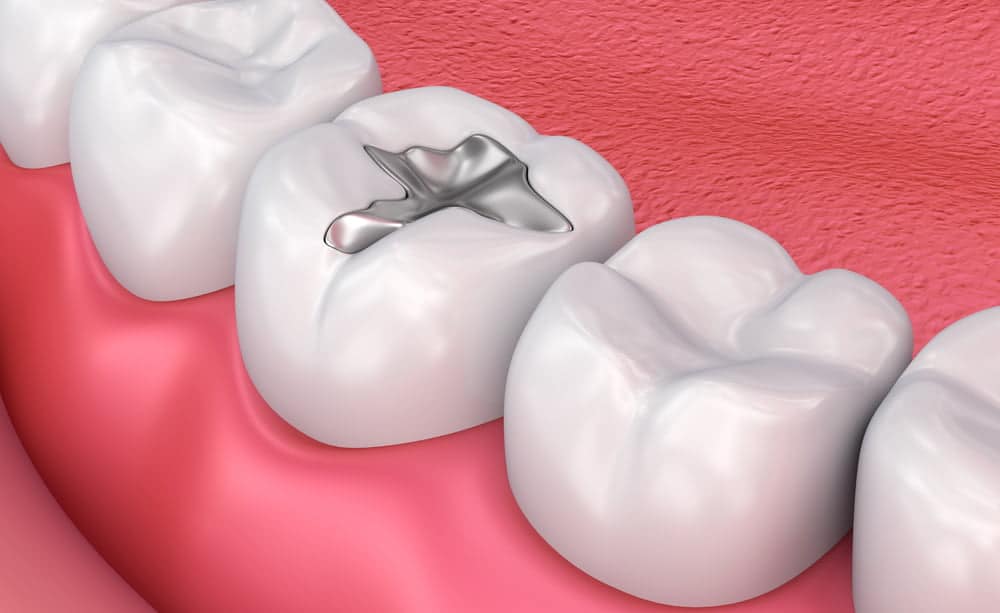What is a Dental Filling?
A dental filling is a treatment method applied to repair decayed or damaged teeth. A filling aims to restore the natural structure and function of the tooth by filling the gaps in the tooth. However, there are some important points to consider after the filling. These care recommendations ensure that the filling is long-lasting and your dental health is protected.
What Should You Pay Attention to After a Dental Filling?
- Eating and Drinking in the First Hours
Do Not Eat Until the Effect of Anesthesia Wears Off: Local anesthesia is usually applied during the filling application. Therefore, eating before the effect of anesthesia wears off may increase the risk of biting your lip or tongue.
Avoid Hard and Sticky Foods: Avoid hard, sticky or extremely hot-cold foods for the first few hours.
- Cold-Hot Sensitivity
It is normal to feel sensitive to hot or cold foods for a few days after the filling procedure. This is usually temporary. However, if the sensitivity continues for a few weeks, consult your dentist.
- Brush and Floss
Clean Gently: Avoid using too much pressure when brushing the area where the filling was placed.
Continue Flossing: Floss regularly to keep the area around the filling clean. However, floss carefully to prevent damage to the filling.
- Avoid Chewing Hard Objects
Avoid chewing hard foods (ice, hard candy) or objects (like pencil tips) to avoid stressing the tooth where the filling is placed. This will prevent the filling from breaking.
- Alignment of the Jaw and Teeth
If you notice a change in the way your teeth bite after a filling, consult your dentist. Alignment problems can be easily corrected by smoothing the surface of the filling.
- Pain and Discomfort
A slight ache or discomfort is usually normal and will go away within a few days.
However, if you experience prolonged pain, throbbing, or discomfort when biting on the tooth where the filling was placed, this may be a sign of a problem. Contact your dentist.
- Don’t Skip Check-ups
Don’t forget to visit your dentist regularly to check the condition of your filling and your general oral health.
It is important to check whether the filling is in place and that the surrounding teeth are healthy.
Recommendations for Extending the Life of a Dental Filling
Regular Oral Hygiene:
Brush and floss your teeth at least twice a day. Cleaning the plaque between your teeth extends the life of the filling.
Stay Away from Acidic Foods:
Frequently consuming acidic drinks can cause erosion of fillings and teeth.
Prevent Clenching Your Teeth:
If you have a bruxism (teeth grinding) problem, consult your dentist and consider using a night guard.
Healthy Diet:
Support your teeth and fillings by consuming foods rich in calcium and vitamin D.
Dentist Check-ups:
Have regular dental check-ups every 6 months and have the condition of your fillings monitored.
Things to Consider According to Filling Types
Amalgam Fillings:
These fillings are made of metal mixtures and are generally more durable.
You can prevent the wear of fillings by avoiding hard foods.
Composite Fillings:
These fillings, which are aesthetically compatible with the color of your teeth, have a more delicate structure.
Staying away from hard and sticky foods extends the life of fillings.
Porcelain Fillings:
Porcelain fillings are advantageous in terms of aesthetics and durability. However, they require special care, so pay attention to your dentist’s recommendations.
Dental fillings are an effective way to protect dental health and use your teeth healthily for many years. However, proper care after filling increases the durability of fillings and protects your oral health. In case of any problems or discomfort you experience after the filling procedure, be sure to consult your dentist.
Don’t forget to take good care of your teeth for a healthy and happy smile!




